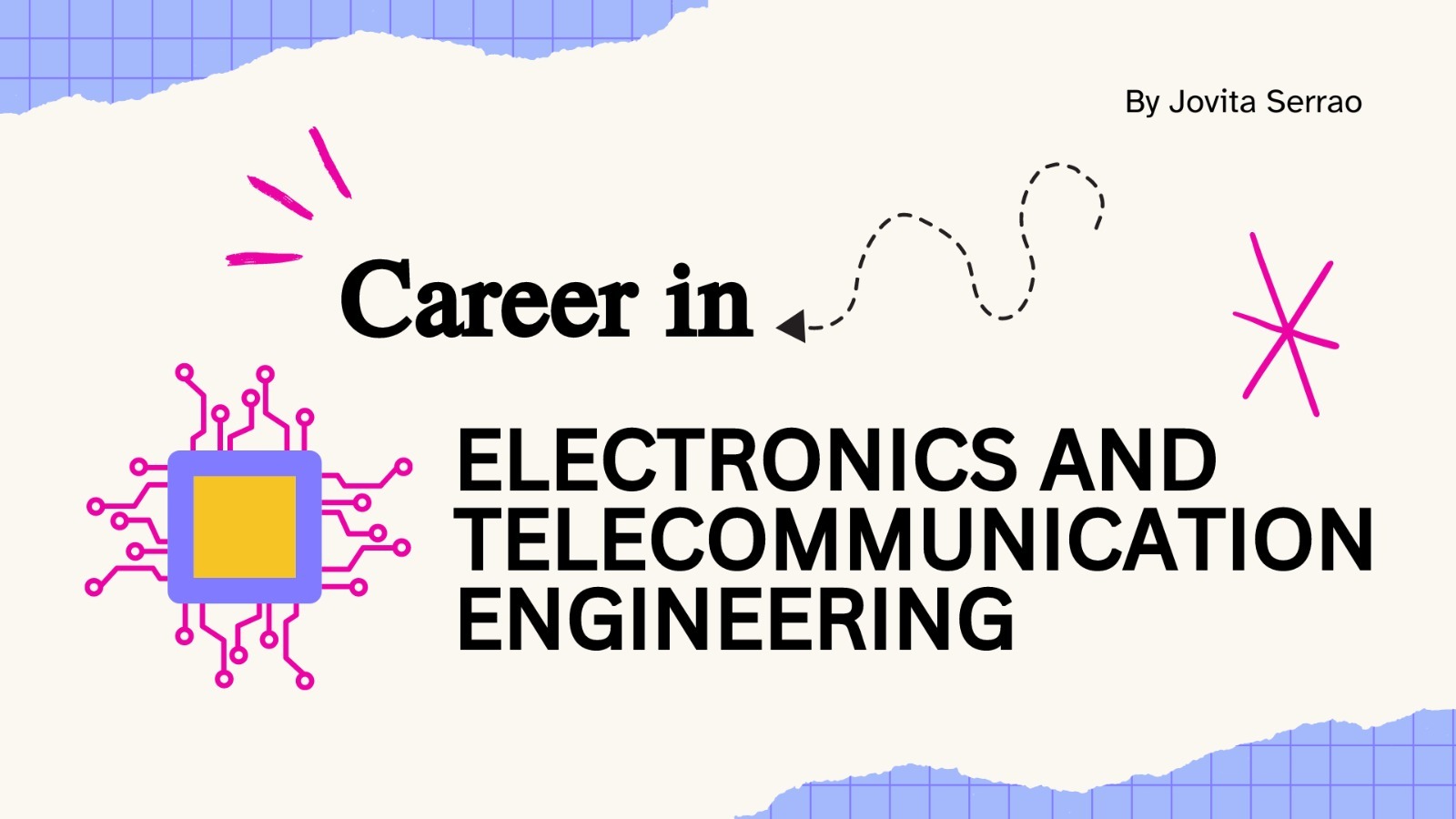
Navigating a Career in Electronics and Telecommunication Engineering Opportunities and Insights
Are you passionate about electronics and curious about how communication systems work? Why should you choose Electronics and Telecommunication Engineering (ETE) as your career path? What specializations are available, and what would your day-to-day activities entail?
This blog aims to answer these questions and more, providing a comprehensive guide for students in India on embarking on a career in this exciting field.
Why Choose a Career in Electronics and Telecommunication Engineering?
Choosing a career in Electronics and Telecommunication Engineering opens the door to a dynamic and innovative industry. This field is crucial in driving technological advancements, from developing the latest smartphones to creating communication networks that connect the world. With a blend of creativity and technical expertise, ETE professionals play a vital role in shaping the future of technology.
Specializations in the Career
Electronics and Telecommunication Engineering offers a variety of specializations, including:
- Microelectronics
- Communication Systems
- Signal Processing
- Embedded Systems
- Network Engineering
Day-to-Day Activities of an ETE Professional
A typical day for an ETE professional can vary widely based on their role. Some common activities include:
- Designing and testing electronic circuits and systems
- Developing and maintaining communication networks
- Analyzing and processing signals for various applications
- Collaborating with multidisciplinary teams on innovative projects
- Troubleshooting and resolving technical issues
Eligibility Criteria
To pursue a career in Electronics and Telecommunication Engineering, candidates in India typically need:
Pathways After SSC (10th Grade):
- Enroll in a Diploma in Electronics and Telecommunication Engineering, which can be followed by lateral entry into the second year of a Bachelor’s degree program.
Pathways After HSC (12th Grade):
- Complete 12th grade with a focus on Physics, Chemistry, and Mathematics (PCM).
- Qualify for entrance exams such as JEE Main, JEE Advanced, or state-level engineering entrance exams (e.g., MHT-CET for Maharashtra).
Higher Education:
- A Bachelor’s degree in Electronics and Telecommunication Engineering (B.E./B.Tech).
- Advanced positions may require a Master’s degree (M.E./M.Tech) or PhD.
Job Opportunities
The job market for ETE professionals is robust, with opportunities in various sectors, including:
- Telecommunication companies
- IT and network service providers
- Consumer electronics manufacturers
- Research and development organizations
- Government agencies
Salary
Salaries for ETE professionals in India can vary based on experience, location, and specialization. On average:
- Entry-level engineers can expect to earn between INR 3 to 6 lakhs per annum.
- Mid-level professionals may earn between INR 6 to 12 lakhs per annum.
- Senior-level engineers and specialists can earn INR 12 lakhs and above per annum.
Key Skills Required
To excel in ETE, one must possess:
- Strong analytical and problem-solving skills
- Proficiency in programming and simulation tools
- Excellent communication and teamwork abilities
- Adaptability and continuous learning mindset
- Project management skills
Industry Trend/Future Prospects
The future of ETE is bright, driven by trends like:
- The rollout of 5G networks
- Growth of the Internet of Things (IoT)
- Advances in artificial intelligence and machine learning
- Development of quantum computing and nanotechnology
- Expansion of smart cities and autonomous systems
Top Institutes in India:
- Indian Institute of Technology (IIT) Bombay
- Indian Institute of Technology (IIT) Delhi
- Indian Institute of Technology (IIT) Kanpur
- Indian Institute of Technology (IIT) Madras
- Indian Institute of Technology (IIT) Kharagpur
Top Institutes in Mumbai:
- Veermata Jijabai Technological Institute (VJTI)
- Sardar Patel Institute of Technology (SPIT)
- Dwarkadas J. Sanghvi College of Engineering (DJSCE)
- Thadomal Shahani Engineering College (TSEC)
- K.J. Somaiya College of Engineering (KJSCE)
Fees
The cost of an ETE program in India can vary widely:
- Diploma programs: INR 20,000 to 50,000 per year
- Bachelor’s programs: INR 1 to 2 lakhs per year in government colleges; INR 3 to 5 lakhs per year in private colleges
- Master’s programs: INR 1 to 3 lakhs per year
Scholarships/Loans
Many institutions offer scholarships and loans, such as:
- National Scholarships (e.g., MHRD scholarships)
- State Government Scholarships
- Institution-specific scholarships
- Education loans from banks and financial institutions
Experts from the Field
- Dr. Vijay Bhatkar, Ph.D. in Electronics and Electrical Communication Engineering from Indian Institute of Technology (IIT) Delhi. Currently serves as Chancellor of Nalanda University and is renowned as the architect of India's PARAM series of supercomputers.
- Dr. G. Satheesh Reddy, Ph.D. in Electronics and Communication Engineering from Jawaharlal Nehru Technological University (JNTU), Hyderabad. Currently serves as the Secretary of the Department of Defence R&D and Chairman of the Defence Research and Development Organisation (DRDO).
- Sundar Pichai, M.S. in Electronics and Telecommunication Engineering from Stanford University. Currently serves as the CEO of Alphabet Inc. and Google, with a background in engineering and technology management.
Conclusion
A career in Electronics and Telecommunication Engineering is both rewarding and essential to the advancement of technology. By developing the necessary skills and staying abreast of industry trends, you can unlock numerous opportunities and make significant contributions to the technological world. For personalized advice and guidance, feel free to reach out!
---
Author: Ms. Jovita Serrao
Position: Founder and Career Counselor, Career Pravaas
Contact Information: jovita.s@jetech.co.in
---
Stay tuned for more insights and guidance on various career paths. Feel free to reach out if you have any questions or need personalized advice!
---
Keywords: Electronics and Telecommunication Engineering, career in ETE, ETE specializations, day-to-day activities of ETE professionals, ETE eligibility criteria, job opportunities in ETE, ETE salary in India, career progression in ETE, key skills for ETE, industry trends in ETE, top institutes for ETE in India, top institutes for ETE in Mumbai, ETE fees, ETE scholarships and loans, experts in ETE
